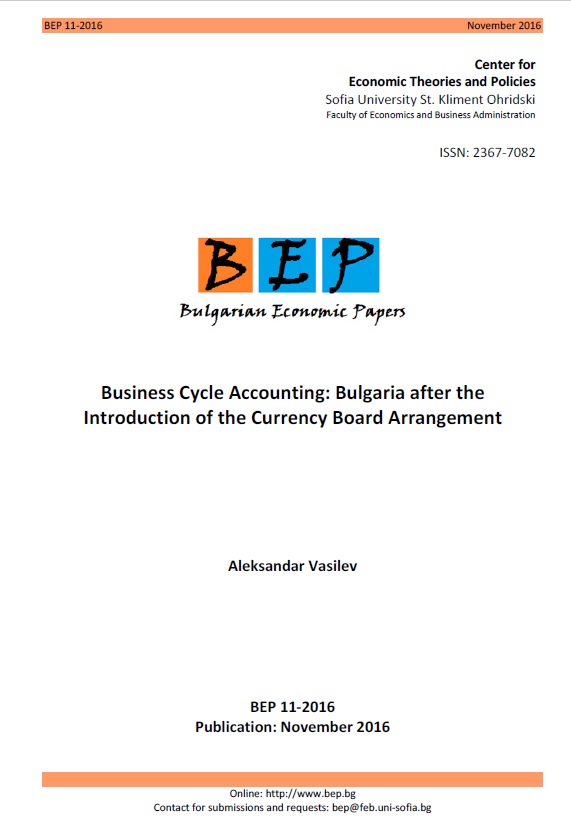Business Cycle Accounting: Bulgaria after the introduction of the currency board arrangement (1999-2014)
Business Cycle Accounting: Bulgaria after the introduction of the currency board arrangement (1999-2014)
Author(s): Aleksandar VasilevSubject(s): Economy, National Economy, Financial Markets, Public Finances
Published by: Софийски университет »Св. Климент Охридски«
Keywords: Business Cycle accounting; Bulgarian economy; efficiency and labor wedges
Summary/Abstract: This paper focuses on explaining the economic uctuations in Bulgaria after the introduction of the currency board arrangement in 1997, the period of macroeconomic stability that ensued, the EU accession, and the episode of the recent global financial crisis. This paper follows Chari et al. (2002) and performs business cycle accounting (BCA) for Bulgaria during the period 1999-2014. As in Cavalcanti (2007), who studies the Portuguese business cycles, most of the volatility in output per capita in Bulgaria over the period is due to variations in the efficiency and labor wedges.
Journal: Bulgarian Economic Papers
- Issue Year: 2016
- Issue No: 11
- Page Range: 1-27
- Page Count: 27
- Language: English

